BPI and more specifically, Columbina, would like to wish all of her many friends, both in the world, and those who are not of it, a very Merry Christmas. This blog has been closed for a while, but I wanted to end it on a positive note, at the close of this season. It’s been a joyous ride, and I continue to blog about many other interests, life experiences, and art over at Tales From the Golden Ghetto.
But all good things must come to an end, and Smoke Rings has finally “dissipated”.
I am truly grateful to the following people who taught me how to blog, how to be a better writer, and frankly, how to be a better person. Many of them are shy, and therefore, I will only use links to their blogs to name them. As I’ve said before, this isn’t some annoying, self absorbed “good-bye” or anything. (First, I’d like to thank God for this award….LOL)
But I want to say to these lovely people: All of you made 2009 bearable, and a wonderful journey of learning from mistakes, learning from suffering and learning about myself. All of you helped to give me my greatest gift for Christmas: my identity. Through exploring so many subjects, topics and discussions with you, I finally came “home” in my heart and found out who I really am. I will always be grateful to you and my hands will always find a way to help you, my lips a way to pray for you, my heart a way to love you, my head a way to bless you, my feet a way to direct you.
Kyrie Eleison, a voice of truth and beauty in the wilds of Montreal — a true sister on the Way.
Juvenaly, “Misha” Martinka of Theophany Designs – my beloved webmaster and friend, Mesa, Arizona
Uncle Clem – the distinguished, dignified, and truly humble Professor of Theology in Asheville, NC
Breaking Babylon — the son I never had.
The Desert Seeker —fellow TCK/global nomad, and truly humble teacher of many things arcane and Orthodox.
Sergius-Bob –wherever he may be, may he be blessed and know he always has a home.
Orthodox Monk — we’ve never met, but someday, God willing. You helped me to learn how to quit being a victim, stand up for myself, for others and for the Faith, when necessary. I’ll still be “stalking” you in cyber space, learning from your excellent example.
Justinian: you defended me when I needed it, and you encouraged me when I was truly despairing. You also taught me to stop using fragmented sentences and to be more precise! LOL
Iconblogographer — Matthew Garrett: inspiration, and gentleness. As well as battling cosmic evil as Batman, you are da man.
I close this blog permanently, and with great gratitude to all of you and these words from Tolkien’s , “The Hobbit”, the ultimate TCK poem.
Roads Go Ever On — (c) JRR Tolkien
- Roads go ever ever on,
- Over rock and under tree,
- By caves where never sun has shone,
- By streams that never find the sea;
- Over snow by winter sown,
- And through the merry flowers of June,
- Over grass and over stone,
- And under mountains of the moon.
- Roads go ever ever on
- Under cloud and under star,
- Yet feet that wandering have gone
- Turn at last to home afar.
- Eyes that fire and sword have seen
- And horror in the halls of stone
- Look at last on meadows green
- And trees and hills they long have known.
- The Road goes ever on and on
- Down from the door where it began.
- Now far ahead the Road has gone,
- And I must follow, if I can,
- Pursuing it with eager feet,
- Until it joins some larger way
- Where many paths and errands meet.
- And whither then? I cannot say.
- The Road goes ever on and on
- Out from the door where it began.
- Now far ahead the Road has gone,
- Let others follow it who can!
- Let them a journey new begin,
- But I at last with weary feet
- Will turn towards the lighted inn,
- My evening-rest and sleep to meet.
-
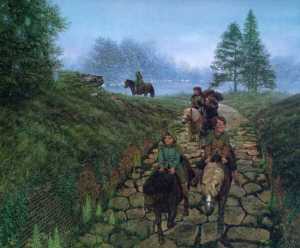


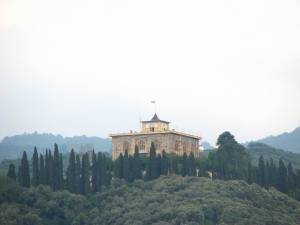
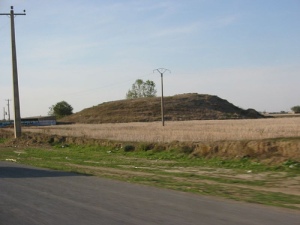
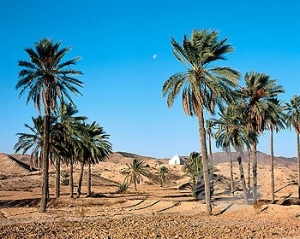

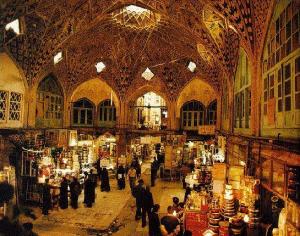

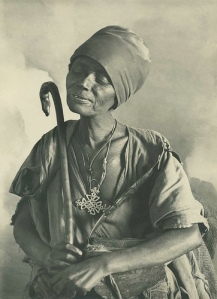



You must be logged in to post a comment.